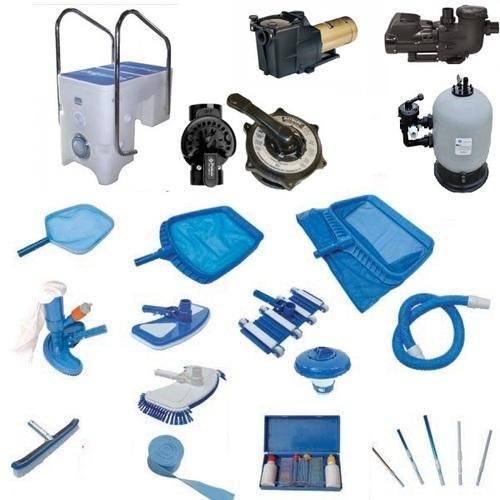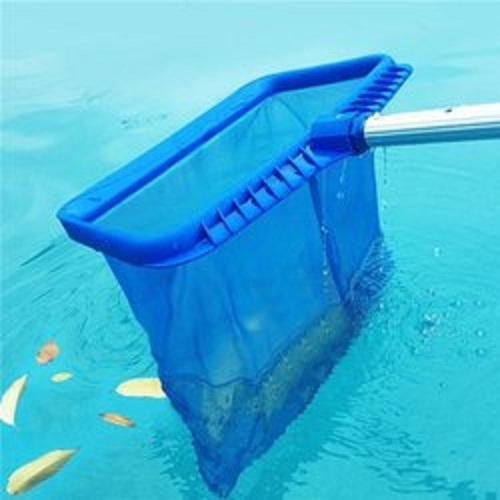Swimming Pool Cleaning Kit Manufacturer
Magline Pools is a Leading Manufacturer and Supplier of Swimming Pool Cleaning Kit, Pool Table Cleaning Kit, Pool Starter Cleaning Kit, and Pool Chemical Cleaning Kit in Ghaziabad, Uttar Pradesh, India.
We at Magline Pools import a large range of pool maintenance kits & equipment. The home sector, farms, hotels, and resorts all employ this technology since it is simple to use. With strict quality controls, we distribute these goods. These are entirely resistant to corrosion and very effective, in giving clean water. To ensure longevity and resistance to wear and tear, this equipment is built with high-quality raw materials. wipers, nets, pipes, pumps, and other things are just a few of the tools and equipment to provide you with the best swimming pool cleaning accessories maker in India.
Palstic Swimming Pool Maintenance Kit

Swimming Pool Cleaning Kit & Equipment

| Usage/Application | Swimming Pool Cleaning Kit |
| Color | Blue |
| Brand | DGM |
| Weight | 1.5-2 kg |
| Length | 1-1.5 meter |
A swimming pool cleaning kit & equipments is a collection of tools and equipment designed to help you maintain the cleanliness and hygiene of your swimming pool. These kits typically include various items that assist in removing debris, maintaining water chemistry, and keeping the pool walls and floor clean. Here are some common components you might find in a swimming pool cleaning kits:
- Pool skimmer: A pool skimmer is a net or basket attached to a telescopic pole. It is used to skim leaves, insects, and other floating debris from the surface of the pool water.
- Pool brush: A pool brush is typically made of nylon bristles and is used to scrub the walls, floor, and steps of the swimming pool to remove dirt, algae, and other deposits. There are different types of brushes available depending on the pool surface (concrete, vinyl, fiberglass, etc.
- Pool vacuum head and hose: A pool vacuum head attaches to a telescopic pole and connects to a vacuum hose. This setup allows you to manually vacuum the pool floor and walls, removing dirt, sand, and smaller debris. The hose is usually connected to the pool’s filtration system or a separate pool vacuum pump.
- Water test kit: A water test kit is used to measure the chemical balance and water quality parameters of the pool, such as PH level, chlorine or sanitizer levels, alkalinity, and calcium hardness. It helps you ensure that the water is safe and properly balanced for swimming.
- Pool maintenance chemicals: Some pool cleaning kits may include basic chemicals like chlorine tablets or shock treatments, PH adjusters, algaecides, and clarifiers. These chemicals help maintain the water chemistry and keep the pool water clear and sanitized.
FREQUENTLY ASKED QUESTION
To keep your pool clean, you’ll need a variety of supplies. Here are some essential items you’ll need to clean your pool:
Pool Skimmer: A pool skimmer is a net-like tool used to remove debris from the surface of your pool. It can be used to remove leaves, insects, and other floating debris.
Pool Brush: A pool brush is used to scrub the walls, steps, and floor of your pool to remove dirt, debris, and algae. It is an essential tool to keep the pool clean and prevent staining.
Pool Vacuum: A pool vacuum is used to remove debris and dirt from the bottom of your pool. You can choose from manual, automatic, or robotic pool vacuums, depending on your budget and preference.
Pool Chemicals: You’ll need to keep your pool water properly balanced and sanitized, so it’s safe and healthy to swim in. You’ll need chemicals such as chlorine, pH balancers, and algaecide.
Test Kit: You’ll need a pool test kit to measure the chemical levels in your pool water, so you can adjust them as needed.
Pool Filter: A pool filter is used to remove dirt and debris from the water in your pool. You can choose from sand filters, cartridge filters, and DE filters.
Pool Cover: A pool cover is an essential item to protect your pool from debris and leaves when it’s not in use.
Pool Maintenance Kit: A pool maintenance kit typically includes a skimmer, brush, and vacuum head, and other tools to help you clean and maintain your pool.
By having these essential supplies on hand, you can keep your pool clean and safe for all swimmers. Don’t hesitate to seek advice from a pool professional, especially when it comes to chemicals and proper maintenance.
Cleaning dirty pool water requires a few steps to ensure that the water is properly balanced and sanitized. Here are some best practices for cleaning dirty pool water:
Test the Water: Use a pool test kit to measure the pH, chlorine, and alkalinity levels of the pool water. You’ll need to adjust the levels to ensure they’re within the recommended ranges.
Shock the Pool: Shocking the pool means adding a large dose of chlorine to the water to kill bacteria, viruses, and algae. This is an essential step in cleaning dirty pool water.
Brush and Vacuum the Pool: Use a pool brush to scrub the walls, steps, and floor of the pool to remove any dirt and debris. Then, use a pool vacuum to remove the debris from the bottom of the pool.
Run the Filter: The pool filter helps to remove debris and particles from the water. Run the filter for several hours a day to keep the water clean.
Backwash the Filter: When the filter becomes dirty, it can reduce its effectiveness in cleaning the water. Backwashing the filter helps to remove the dirt and debris that has been captured.
Add Clarifier: A pool clarifier is a chemical that helps to coagulate particles in the water, making it easier for the filter to remove them. Add a pool clarifier if the water remains cloudy after the above steps.
Repeat if Necessary: If the water is still dirty after following these steps, you may need to repeat them until the water is clean.
Cleaning dirty pool water can take some effort, but by following these steps, you can ensure that your pool water is safe and clean for all swimmers.
Cleaning your own pool can be less expensive than hiring a professional pool service, but it requires time and effort on your part. Here are some factors to consider when deciding whether to clean your own pool or hire a professional:
Time and Labor: Cleaning a pool requires regular maintenance, which can take up a significant amount of time and effort. You’ll need to skim the surface, brush the walls and floor, vacuum the bottom, and maintain the chemical balance of the water. If you have the time and energy to do this regularly, then cleaning your own pool may be a good option.
Equipment and Supplies: To clean your pool properly, you’ll need to have the necessary equipment and supplies, such as a skimmer, brush, vacuum, chemicals, and a test kit. You’ll need to purchase and maintain this equipment, which can add to the overall cost.
Experience and Expertise: Cleaning a pool requires some knowledge and experience to ensure that the pool is properly maintained and balanced. If you’re not experienced in pool maintenance, you may make mistakes that can lead to costly repairs down the road.
Cost: Hiring a professional pool service can be more expensive than cleaning the pool yourself. However, you’ll have the peace of mind that comes with knowing that the pool is being properly maintained and balanced by a trained professional.
In summary, cleaning your own pool can be less expensive than hiring a professional, but it requires time, effort, and some experience. If you’re willing to invest the time and energy to maintain your pool properly, then cleaning your own pool may be a good option. However, if you prefer to have a professional handle the maintenance and upkeep of your pool, then hiring a pool service may be the better choice.
Cleaning your own pool can be less expensive than hiring a professional pool service, but it requires time and effort on your part. Here are some factors to consider when deciding whether to clean your own pool or hire a professional:
Time and Labor: Cleaning a pool requires regular maintenance, which can take up a significant amount of time and effort. You’ll need to skim the surface, brush the walls and floor, vacuum the bottom, and maintain the chemical balance of the water. If you have the time and energy to do this regularly, then cleaning your own pool may be a good option.
Equipment and Supplies: To clean your pool properly, you’ll need to have the necessary equipment and supplies, such as a skimmer, brush, vacuum, chemicals, and a test kit. You’ll need to purchase and maintain this equipment, which can add to the overall cost.
Experience and Expertise: Cleaning a pool requires some knowledge and experience to ensure that the pool is properly maintained and balanced. If you’re not experienced in pool maintenance, you may make mistakes that can lead to costly repairs down the road.
Cost: Hiring a professional pool service can be more expensive than cleaning the pool yourself. However, you’ll have the peace of mind that comes with knowing that the pool is being properly maintained and balanced by a trained professional.
In summary, cleaning your own pool can be less expensive than hiring a professional, but it requires time, effort, and some experience. If you’re willing to invest the time and energy to maintain your pool properly, then cleaning your own pool may be a good option. However, if you prefer to have a professional handle the maintenance and upkeep of your pool, then hiring a pool service may be the better choice.

